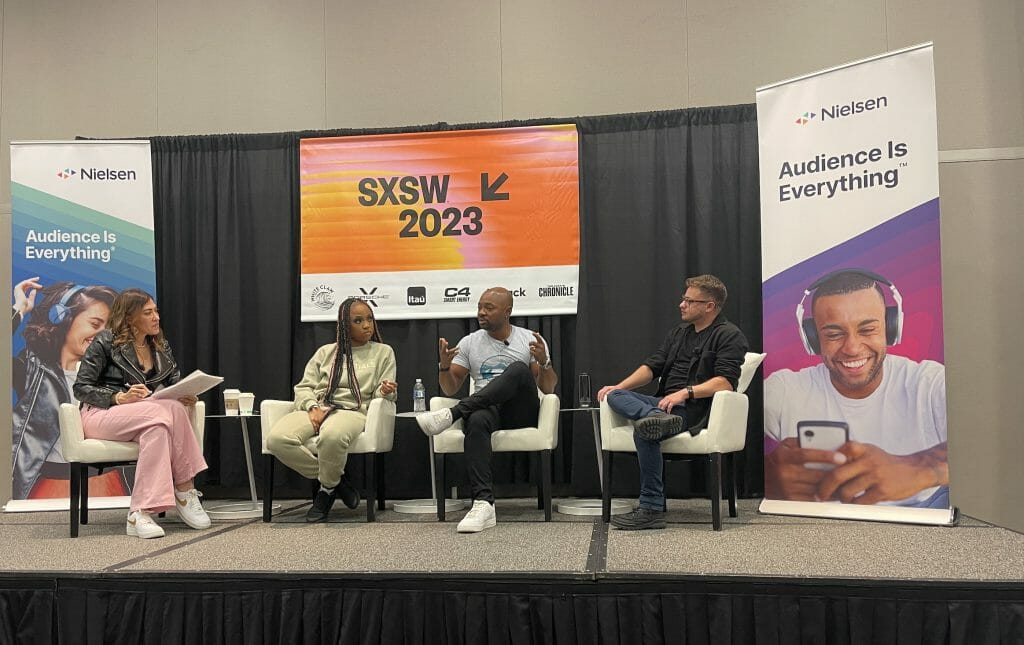On the second day of SXSW 2023, Nielsen and GLAAD hosted the panel “How Will TV Evolve for the Queerest Generation Yet.”
Stacie M. deArmas, Nielsen’s SVP of Diverse Insights and Initiatives, moderated the discussion with panelists Nneka Onuorah, Emmy Award-Winning Director for Lizzo’s Watch Out for the Big Grrrls, Brian Michael Smith, actor on FOX’s 9-1-1 Lone Star, and Alex Schmider, film producer and GLAAD’s Director of Transgender Representation.
The conversation covered each of the three panelist’s unique journeys in storytelling, motivated in many ways by the lack of representation for their own life experiences on screen.
Onuorah spoke about the impetus for directing her film Same Difference which was nominated for a GLAAD Media Award in 2015, commentating on the rigid gender roles and expectations lesbian women of color contend with even from within the community, while Smith spoke about his work as an educator encouraging young people to pursue their passions and, in doing so, recognized that meant he needed to commit to acting full-time.
Schmider described how both hypervisibility of certain narratives compared side-by-side with the invisibility of others informs how LGBTQ people feel about themselves and how the world views the community–audiences internalize the images they see and it takes work to unlearn misrepresentations.
deArmas added that the industry should also be considering expectations from younger consumers from a business perspective, citing data Nielsen released in 2021, showcasing LGBTQ audiences (who make up 7.1% of the American population with about 20% of Gen Z as identifying as part of the community) as social media bellwethers, overindexing for “use of almost all digital content delivery platforms.”
Schmider teased the next Where We Are on TV Report that will be released in the coming weeks from GLAAD which, year over year, evaluates the quantity and quality of LGBTQ stories on television, and reiterated that especially for young viewers, they expect to see the world they live in reflected in the content they consume which therefore includes LGBTQ people.

 The conversation also branched into the different personal introspections and approaches Onuorah, Smith, and Schmider take in their own projects, encouraging content creators and consumers to think and create critically with a mindfulness for how stories on television and across screens have real-world consequences on the communities portrayed.
The conversation also branched into the different personal introspections and approaches Onuorah, Smith, and Schmider take in their own projects, encouraging content creators and consumers to think and create critically with a mindfulness for how stories on television and across screens have real-world consequences on the communities portrayed.
A thematic thread through the dialogue was about imagining outside stories seen before, even by LGBTQ people themselves, and not giving up simply because a story doesn’t fit into a prescriptive studio mandate, familiar template, or preset LGBTQ story formula.
Though the three panelists challenged the entertainment industry to take their culture shaping power into account when deciding on which stories get told and by who, they also spoke to the capability for creators to just go make work and not give up even when the stories they are championing are ahead of their time.
The panel was attended by over a hundred people and was followed by a Q&A.













